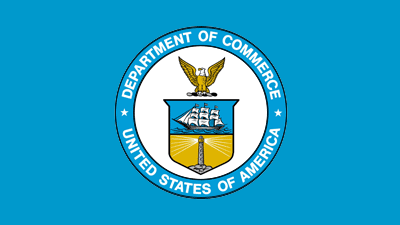This would be a good opportunity to provide a thoughtful, sane, and coherent response to voice your opinion on the future regulation policies for AI to counter the fearmongering.
How to submit a comment: https://www.regulations.gov/document/NTIA-2023-0009-0001
All electronic public comments on this action, identified by Regulations.gov docket number NTIA–2023–0009, may be submitted through the Federal e-Rulemaking Portal. The docket established for this request for comment can be found at www.Regulations.gov, NTIA–2023–0009. To make a submission, click the ‘‘Comment Now!’’ icon, complete the required fields, and enter or attach your comments. Additional instructions can be found in the “Instructions” section below, after “Supplementary Information.”
Of course they only want to regulate open source models…
From their list of concerns:
The benefits and risks of making model weights widely available compared to the benefits and risks associated with closed models; Innovation, competition, safety, security, trustworthiness, equity, and national security concerns with making AI model weights more or less open; and The role of the U.S. government in guiding, supporting, or restricting the availability of AI model weights
It seems like they’re concerned about both open and closed models, and they’re interested in supporting as well as potentially regulating both.
Lol, no they aren’t. That’s just legalese. A government regulator agency isn’t going to open feedback about what it should be doing regulatory wise and promt the entire thing with “Why should we close AI to only corporations willing to post enough money”. They have to at least include the “but maybe potentially let average people use AI” part so when they close everything down they can point back and say “look, we were open to talking about open solutions”.
That tends to be the outcome of processes like this, and sometimes it is because the agency already decided on policy ahead of time and only asked for public input for the sake of appearances. But in other cases the request for input is in good faith, and industry interests end up dominating the discussion because other voices convince themselves they’d be ignored anyway.
In the case of new industries still in flux, it’s more likely that commercial interests haven’t yet infiltrated the relevant agencies to dictate policy from within—which is why they have to rely on hyperbolic scare tactics and hope no one contradicts them.
Haha, that’d be fun. EU with least regulation on open-weight models and the US exalctly the other way around.
Use your preferred AI to write the letter for you!
Am American, am not particularly tech savvy. Can anyone recommend a reliable resource to read more about this? Are there any nonprofit or foss groups that are likely to have a published position on how AI should be regulated?
The EFF has published some suggestions in the past, I’d generally trust their perspective.
Well the open source community should have a near zero unified opinion on how a broad technology should be centrally managed. Individual groups or persons should hold their own positions.
This is like saying binary search, or encryption should be regulated. LLM is just a particular technology. A fundamental thing. It’s just math and systems.
Products and derivates may be another thing (like Perhaps creating deepfakes of living people, for example, or training a model on copyright material)
They finally found a way to make freedom-software a boogieman… at least plausibly enough to fool the panicky public.
For a country founded in FREEDOM FUCK YEAH they really dont like freedom software do they.
I don’t understand how we are supposed to file a comment?
Typically https://www.regulations.gov/ but I didn’t see it on there.
Here are the instructions from: https://www.ntia.gov/federal-register-notice/2024/dual-use-foundation-artificial-intelligence-models-widely-available#
All electronic public comments on this action, identified by Regulations.gov docket number NTIA–2023–0009, may be submitted through the Federal e-Rulemaking Portal. The docket established for this request for comment can be found at www.Regulations.gov, NTIA–2023–0009. To make a submission, click the ‘‘Comment Now!’’ icon, complete the required fields, and enter or attach your comments. Additional instructions can be found in the “Instructions” section below, after “Supplementary Information.”
deleted by creator
I’d recommend consulting ISO/IEC 5469 and any others published by its AI standards committee, ISO/IEC 42.





